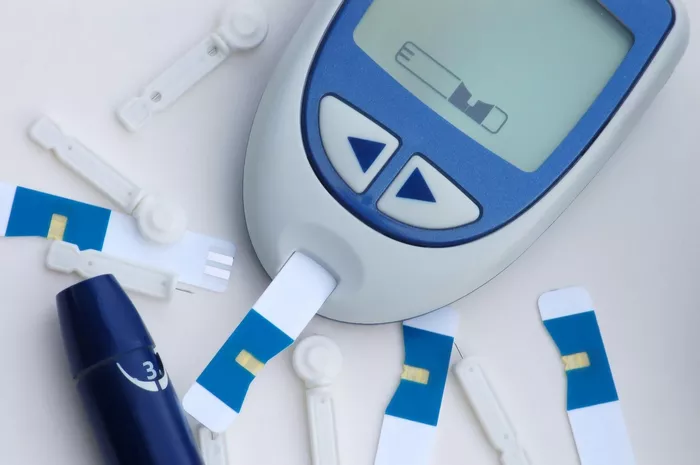The ketogenic diet, commonly referred to as the keto diet, has gained significant popularity in recent years for its potential benefits in weight loss, improved mental focus, and increased energy levels. However, one of the most compelling areas of research is its impact on diabetes management. This article will explore the keto diet’s mechanisms, benefits, potential risks, and practical considerations for people with diabetes.
Understanding the Keto Diet
The keto diet is a high-fat, low-carbohydrate diet that aims to shift the body’s primary energy source from carbohydrates to fats. By drastically reducing carbohydrate intake and increasing fat consumption, the body enters a metabolic state called ketosis. In ketosis, the liver produces ketones from fat, which become the main fuel source for the body, including the brain.
Mechanisms of the Keto Diet in Diabetes Management
Blood Sugar Control
One of the most significant challenges in diabetes management is maintaining stable blood glucose levels. The keto diet’s low carbohydrate content can lead to a decrease in blood sugar levels, as fewer carbs mean less glucose entering the bloodstream. For people with type 2 diabetes, this can result in improved glycemic control and reduced need for insulin or other glucose-lowering medications.
Insulin Sensitivity
Insulin resistance is a hallmark of type 2 diabetes. The keto diet can enhance insulin sensitivity by reducing the body’s dependence on glucose for energy. When carbohydrate intake is low, insulin demand decreases, which can improve the body’s response to insulin over time.
Weight Loss
Obesity is a significant risk factor for type 2 diabetes. The keto diet can promote weight loss through various mechanisms, including increased satiety from high-fat foods, reduced appetite due to stable blood sugar levels, and increased metabolic rate. Weight loss itself can improve insulin sensitivity and glycemic control, contributing to better diabetes management.
Scientific Evidence Supporting the Keto Diet for Diabetes
Several studies have investigated the effects of the keto diet on diabetes management with promising results:
Short-term Studies
- Virta Health Study (2017): This study followed individuals with type 2 diabetes on a ketogenic diet for one year. Participants experienced significant reductions in HbA1c levels, weight loss, and a decrease in the use of diabetes medications.
- Yancy et al. (2005): A 24-week trial comparing a low-carbohydrate ketogenic diet with a low-glycemic-index diet found that the ketogenic diet group had greater improvements in glycemic control and weight loss.
Long-term Studies
While long-term data is more limited, some studies suggest sustained benefits:
- Westman et al. (2008): A two-year study on the effects of a low-carbohydrate ketogenic diet in individuals with type 2 diabetes demonstrated sustained improvements in glycemic control and weight loss.
Potential Risks and Considerations
Despite the potential benefits, the keto diet may not be suitable for everyone with diabetes. There are several risks and considerations to keep in mind:
Hypoglycemia
For individuals on diabetes medications, especially insulin or sulfonylureas, the risk of hypoglycemia (low blood sugar) can increase when starting a keto diet. Close monitoring of blood glucose levels and medication adjustments under medical supervision are essential.
Nutrient Deficiencies
The restrictive nature of the keto diet can lead to deficiencies in certain nutrients, such as fiber, vitamins, and minerals. It is important to plan the diet carefully to ensure adequate intake of essential nutrients.
Ketoacidosis
Although rare, there is a risk of ketoacidosis, a serious condition characterized by excessively high ketone levels, which can be life-threatening. This risk is higher for individuals with type 1 diabetes and those with poorly controlled type 2 diabetes.
Sustainability
The keto diet can be challenging to maintain long-term due to its restrictive nature. Adherence to the diet is crucial for its benefits, and individuals may find it difficult to stick to the diet over time.
Practical Considerations for Implementing the Keto Diet
For individuals with diabetes interested in trying the keto diet, several practical considerations can help ensure safety and effectiveness:
Medical Supervision
It is essential to consult with a healthcare provider before starting the keto diet, especially for individuals with diabetes. A healthcare provider can help monitor blood glucose levels, adjust medications, and provide guidance on maintaining nutritional balance.
Gradual Transition
A gradual transition to the keto diet can help the body adapt to the new metabolic state and reduce the risk of side effects. Slowly reducing carbohydrate intake while increasing fat consumption over a few weeks can ease the transition.
Balanced Nutrition
Focusing on nutrient-dense, whole foods can help prevent nutrient deficiencies. Incorporating a variety of vegetables, healthy fats (such as avocados, nuts, and olive oil), and moderate protein sources can ensure a balanced diet.
Monitoring Ketone Levels
Regular monitoring of ketone levels using urine strips or blood ketone meters can help ensure that the body is in a safe state of ketosis. This is particularly important for individuals with type 1 diabetes to avoid the risk of ketoacidosis.
Conclusion
The keto diet has shown promise in improving glycemic control, enhancing insulin sensitivity, and promoting weight loss in individuals with diabetes, particularly type 2 diabetes. However, it is not without risks, and careful consideration and medical supervision are essential for safe and effective implementation.
While the keto diet can be a valuable tool in diabetes management, it is important to remember that there is no one-size-fits-all approach. Individual responses to the diet can vary, and what works for one person may not work for another. Therefore, a personalized approach, guided by healthcare professionals, is crucial in determining the best dietary strategy for managing diabetes.
See also: What Breakfast Foods Can Diabetics Eat
Future Directions
As research continues to explore the long-term effects and potential benefits of the keto diet for diabetes management, it is important for individuals to stay informed and work closely with their healthcare team. Ongoing studies and clinical trials will provide more insights into the safety, efficacy, and sustainability of the keto diet for diabetes, helping to shape future dietary recommendations and treatment strategies.
In summary, the keto diet offers a promising option for improving diabetes management, but it requires careful planning, medical supervision, and a personalized approach to ensure safety and effectiveness.
Related topics:
What’s the Importance of Including Fat in Your Diet



























